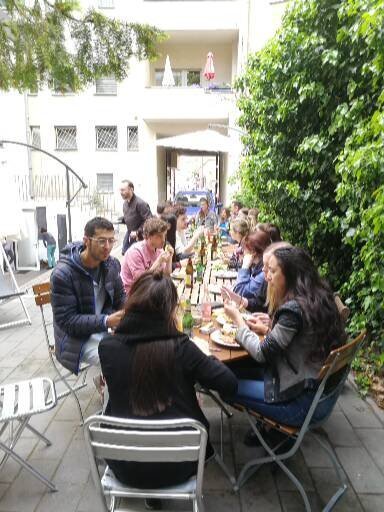Research track: Moving people
“Moving people” is about advancing knowledge related to global migration, disparities, and health. We constitute an interdisciplinary group that share a common interest in “moving people,” and we contribute with different concepts, methods, geographical localities, and past experiences that collectively serve as a resource in this joint endeavor.

We would argue that the importance of learning with moving people, and not only about, is indisputable. Currently there are about 244 million international migranting people in general , where 60 million people are migrating, due to natural or human disasters, such as war or armed conflicts. The process of starting a life in another country can be accompanied by stigma and barriers to integrated community and societal participation. Currently, knowledge in this area is fragmented and limited. On a global level there are shifts occurring in policy making around migration, which directly impacts on everyday participation and possibilities for inclusion among ‘moving people’.
This group takes a critical stance towards current discourses such as “the refugee crisis,” instead adopting an inclusive and community-oriented approach to knowledge creation based on perspectives grounded in human rights and in viewing the human as an occupational being. Those of us working in this track are thematically interested in issues such as trauma, disparities in illness prevention/health promotion, employment/unemployment processes and practices, risks for marginalization, cultural sensitivity, participation in society, resilience, and community building.
Methodologically, we aim to work: 1) in close collaboration with people who have migration and/or refugee experiences, 2) with diversity among stakeholders, and 3) with social partners, that can inform and actively be part of relevant community based research. Our ambition is to critically explore migration while embracing pluralism in ways to create knowledge and sustainability in ways to build communities.
Project members:
Project Team at Karolinska Institutet:
Eric Asaba
Affiliated to ResearchMargarita Mondaca
Affiliated to Teaching/TutoringInternational Collaborators:
- Manuel Guerrero
PhD. Researcher, Department of Public Health and Caring Sciences, Centre for Research Ethics & Bioethics (CRB), Uppsala University. Assistant Professor of Bioethics and Human Rights, Faculty of Medicine, Department of Bioethics & Medical Humanities, University of Chile.
- Nadine Blankvoort
Lecturer and International Coordinator Occupational Therapy. Coordinator Minor Global Health. External PhD Candidate AUAS and Maastricht University.
- Sarah Scheer
B.A. Health Care Education and Occupational Therapy. Research assistant. IB School of Health and Social Sciences. Project Coodinator InterAct.
